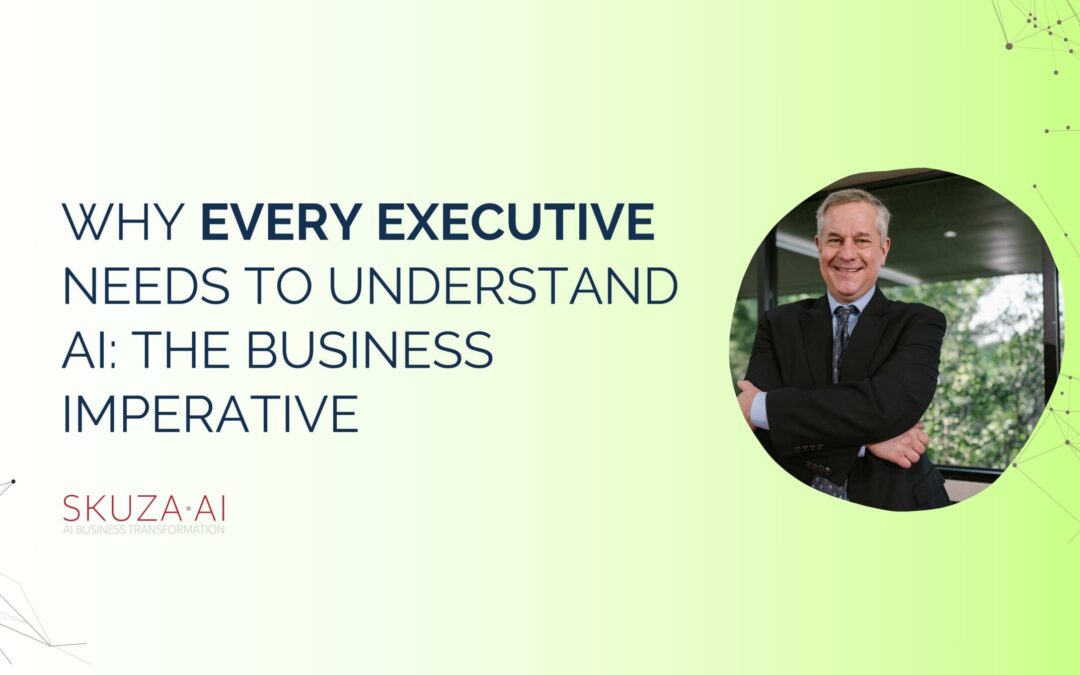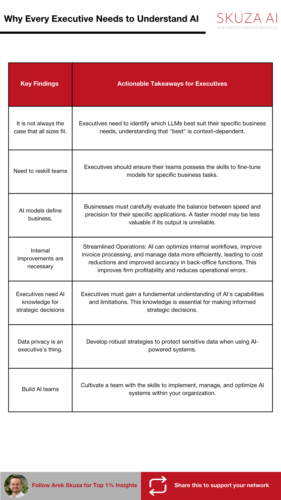The world of artificial intelligence, particularly Large Language Models, is evolving at an unprecedented pace. For senior executives, understanding this evolution isn’t just beneficial—it’s absolutely crucial for future business success. Ignoring AI’s potential is akin to ignoring the internet in its infancy.
This post summarizes groundbreaking research comparing 25 state-of-the-art LLMs, highlighting key findings and explaining why executives need to understand the business value of AI.
Recent benchmarks, including a comprehensive evaluation of 25 leading LLMs against the rigorous MMLU-Pro Computer Science benchmark, reveal a fascinating landscape. This research, involving over 70 hours of testing, unearthed significant insights into the capabilities, limitations, and potential of today’s AI. The results weren’t simply about raw scores; they unveiled key factors impacting performance, such as model architecture, parameter tuning, and resource constraints.
Key Findings and Their Business Implications
- Top Performers and Their Use Cases: Models like Claude 3.5 Sonnet consistently demonstrated top performance, making them ideal for various applications requiring reliability and versatility. Google’s Gemini 1.5 Pro also showcased exceptional capabilities. The insights here are clear: executives need to identify which LLMs best suit their specific business needs, understanding that “best” is context-dependent.
- The Rise of Local Models: The emergence of powerful local models, like QwQ 32B Preview, is a game-changer. These models challenge the dominance of cloud-based services, offering potentially cost-effective and more secure alternatives for businesses concerned about data privacy and control. This democratization of AI capabilities opens doors for smaller companies to leverage cutting-edge technology.
- The Importance of Parameter Tuning: The research underscored the significant impact of parameters like max_tokens on model performance. This highlights the need for expertise in configuring and optimizing AI systems for maximum effectiveness. Executives should ensure their teams possess the skills to fine-tune models for specific business tasks.
- Speed vs. Accuracy: The latest GPT-4o iteration demonstrated a remarkable speed increase, but at the cost of accuracy. This trade-off reveals a crucial consideration in AI implementation: businesses must carefully evaluate the balance between speed and precision for their specific applications. A faster model may be less valuable if its output is unreliable.
- Speculative Decoding: A Performance Booster: This innovative technique can significantly accelerate LLM processing speeds without compromising accuracy, offering substantial efficiency gains for businesses. This translates directly into cost savings and faster turnaround times for AI-driven tasks.
AI’s Impact Across Industries
The implications of these findings reach far beyond the technical realm. Across various industries, AI promises transformative potential:
- Finance: AI can enhance fraud detection, risk assessment, and algorithmic trading, leading to significant cost savings and increased profitability.
- Healthcare: AI-powered diagnostic tools can improve accuracy and efficiency, contributing to better patient outcomes and reduced healthcare costs.
- Manufacturing: Predictive maintenance using AI can minimize downtime and optimize production processes, boosting efficiency and reducing operational expenses.
- Customer Service: AI-powered chatbots can improve customer experience and reduce the burden on human agents, leading to cost efficiencies and increased customer satisfaction.
Actionable Takeaways for Executives:
- Invest in AI literacy by gaining a fundamental understanding of AI’s capabilities and limitations. This knowledge is crucial for executives to make informed strategic decisions.
- Build internal expertise: Cultivate a team with the skills to implement, manage, and optimize AI systems within your organization.
- Explore AI applications: Identify specific areas within your business where AI can create value. Start with pilot projects to test and validate the potential benefits.
- Prioritize data security and privacy: Develop robust strategies to protect sensitive data when using AI-powered systems.
- Stay informed: The AI landscape is constantly evolving. Regularly monitor new developments and advancements to stay ahead of the curve.


